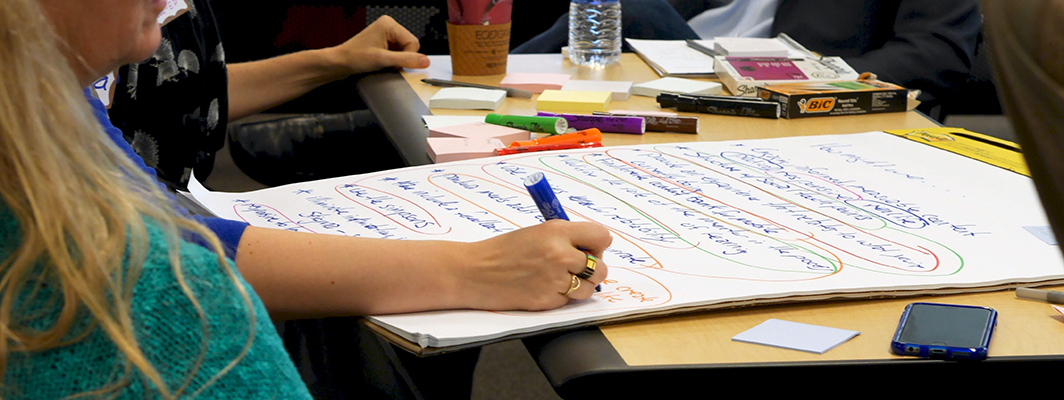
Perhaps you’ve seen the statistics — more than 30 million adults in the U.S. are unable read, write, and solve basic math equations. But our adult basic education programs can only serve roughly four million of those adults. This gap between the need and available educational services has prompted calls for innovative ways to improve access to quality educational resources.
We at Designers for Learning responded to this call by inviting instructional designers, developers, and adult educators to join a crowdsourcing effort to develop free open educational resources (OER) for adults with low math and literacy skills.
We conceived of this crowdsourced design project as part of a massive open online course (MOOC) on Canvas Network and sought out an all volunteer team of designers, facilitators, and subject matter experts to help us.
Much to our surprise, over 1,500 people from around the world registered for the course — and, to date, are actively engaged in creating free, open resources for adult learners.
While participants indicated that they joined the course to get instructional design experience, the majority said that they also joined because of the social cause and need it was supporting.
Most of us are well aware of the needs in our local K-12 schools; rarely does a light shine on the adults in our communities who haven’t completed high school and are now left with few opportunities to improve their skills. It is heartening to have so many designers join us in our effort to support adult learners.
Why has this crowdsourcing design project been successful? The four key factors:
This MOOC was both a professional development opportunity for those interested in instructional design, and a platform to design solutions to support the forgotten millions in our country in need of educational support. In the end, MOOC participants offered their service contributions to a grossly underserved educational segment of adult learners, and left the experience with an appreciation of who these adult learners are as people versus statistics.
It will be exciting to see what these designers do next. We’d love to match some of these designers with entrepreneurs who are interested in creating technology products for adult learners. Their understanding of what it means to create quality learning experiences would make them a great addition to an entrepreneurial team.
For more information about organizations like Designers for Learning, sign up for our monthly adult learning newsletter, The Spotlight.